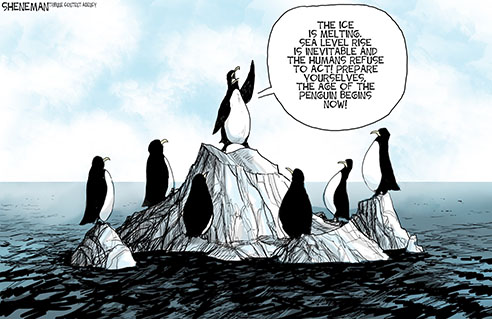National Geographic

This past September, 21st Century Fox bought National Geographic for $725 million. While this merger may seem like an insignificant event, take a moment to consider the impacts these companies have as separate organizations.
National Geographic is known for taking some of the most famous photographs of our time, including images from impoverished towns and under-appreciated beauty. One of their most famous photographs, the Afghan Girl, is known worldwide.
National Geographic is also known as a source for providing science and nature based information about the environment, the solar system, endangered species, and thousands of other topics, many related to environmental science. Most importantly, National Geographic is a valuable source for determining information about climate change.
Believe it or not, Fox is one of the companies that is vehement in their denial of the existence of climate change and global warming. The current CEO of Fox, James Murdoch, has admitted that he is skeptical of climate change and once published a tweet blaming “extreme greenies” for hindering economic growth.
Whether you believe in climate change or not, it is evident that the editorial integrity of National Geographic is in serious danger. Already in the United States, many fear that the media is corrupted and manipulated in order to portray what the authors want us to see.
Under this new management, National Geographic could become a spineless corporation only used to promote republican interpretations of controversial issues such as global warming. Some have gone so far as to say that this merger will promote propaganda within our country by printing sensationalism and turning turning National Geographic into basic yellow journalism.
Many supporters of the magazine are confused as to why National Geographic would sell itself out to Fox when it is clear that they have opposing agendas on more than one issue.
National Geographic is also known for its surreal photos and stories depicting the importance and significance of space travel. Meanwhile, many Republican publications are unsupportive of the use of taxpayer money to explore the great beyond.
While only time will tell how this will impact National Geographic, it is clear that Nat Geo and Fox are not on the same page for several controversial topics.
In my opinion, this union between Fox and National Geographic is not something that should be taken lightly. Although officials claim that the integrity of National Geographic will not be impacted by their new parent company, I will now be taking all of their publications with a grain of salt out of fear for sensationalism.
Whether the company changes or not, most will agree that National Geographic will never be looked at the same way, especially considering the way that many American citizens have been interpreting the media in the twenty-first century.

